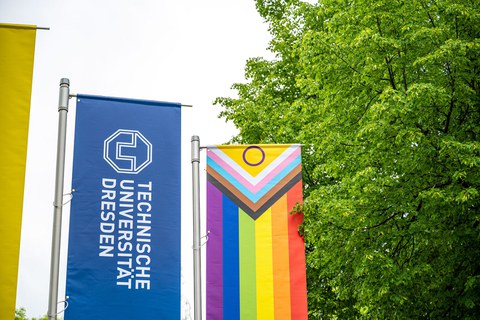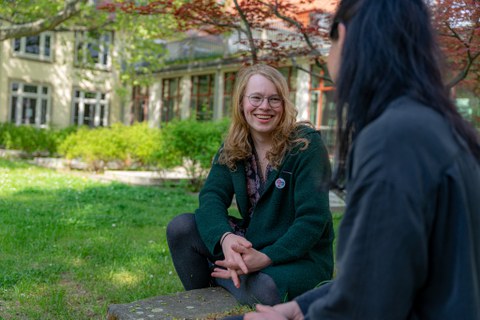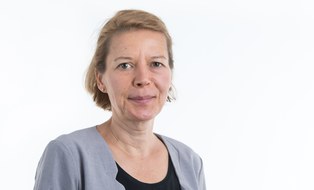TIN*clusive University
NEWS

Progressive Pride Flag
TU Dresden should be a place where TIN university members feel welcome and can develop freely. TIN* stands for Trans*, Inter*, Nonbinary and refers to diverse gender identities.
The law amending the Civil Status Act came into force at the end of 2018. The amendment to the Civil Status Act, which now allows the entries "female", "male", "not specified" and "diverse" in the birth register, broke with the classification of genders in a binary system. This has also brought the discourse on the linguistic visualization of gender diversity into the focus of the general public.
Explanation of terms (pdf file)
With the aim of gender and diversity-sensitive language and image design, TU Dresden adopted a fully updated language guide in 2022.
TU Dresden recognizes the dgti supplement. The document of the German Society for Transidentity and Intersexuality (dgti) serves as the basis for changing the first name and gender entry for students and employees.
https://www.dgti.org/ergaenzungsausweis.html
What are the challenges to ensuring that queer life realities in studies, work, partnership and care are finally a natural part of our university community? This is a priority objective when updating the Equality Concept. Among other things, it is necessary to
- The continuation and expansion of counseling services and contact points such as the QUEER-PEER counseling service;
- Consideration of a statistical collection of personal data and representation, e.g. in committees, which always names at least the diverse option;
- for public relations work in the areas of equality and diversity and diversity-sensitive teaching, in particular to make queer people visible as a matter of course, finally an appropriate representation of the evidence, i.e. significantly better photo and image material;
- a regular exchange between stakeholders in the subject areas;
- examining ways to better adapt the structural infrastructure to the needs, e.g. in the provision of toilet facilities;
- maintaining the recognition of the DGTI card at TU Dresden parallel to the nationwide implementation of the law on self-determination with regard to gender entry (SBGG).
Das Ziel der queeren Peerberatung ist, eine zentrale Anlaufstelle für queere Unimitglieder zu bieten. Sie ist ein offenes Ohr, um auf Augenhöhe über Diskriminierungserfahrungen aufgrund von Queerness, Problemen im Alltag, Outings, Transitionen, Sexualität, uvm. reden zu können. Auch soll sie bei der Bewältigung der vielen Hürden unterstützen, mit denen queere Personen noch immer im Alltag zu kämpfen haben.
Sie können sich außerdem gern an die queere Peerberatung wenden, sollten Sie themenspezifische Anliegen haben, wie z.B. queersensible Lehre oder Allyship .
Für die queere Peerberatung ist Fay Uhlmann verantwortlich. Fay ist nicht-binär trans*feminin und pansexuell, benutzt die Pronomen sie*er, sie/ihr sowie they/them, studiert aktuell Medieninformatik im Bachelor an der Fakultät für Informatik und ist Sprecher:in des FSR Informatik, sowie Referent:in für Feminismus bei der Konferenz Sächsischer Studierendenschaften (KSS).
Falls Sie die queere Peerberatung in Anspruch nehmen wollen, wenden Sie sich mit Ihrem Anliegen bitte an .

Fay Uhlmann
Further documents
- Criteria for TIN*inclusive universities
- Recommendation for action by bukof "Promoting and developing intersectional equality work at universities" (PDF)
- Brochure Inter and Trans at the university - Requirements for IT systems
- Brochure Inter and Trans at the university - Information for decision-makers
- BuKoF recommendations for action for gender diversity at universities
- Vademecum on gender-equitable universities (University of Fine Arts Vienna, PDF file)
- Documentation on the living conditions of ISBTIQ people in Saxony
- The Queer Lexicon
 © Michael Kretzschmar
© Michael Kretzschmar
Dr. phil. Jutta Luise Eckhardt
Gender Equality Commissioner and Women's Representative at TUD
Send encrypted email via the SecureMail portal (for TUD external users only).
Office hours:
- Thursday:
- 11:00 - 14:00
- oder nach Vereinbarung
